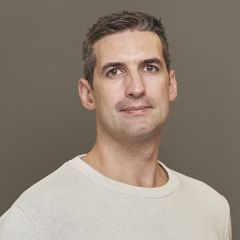Unravelling the transcriptomic changes in the human mammary gland during lactation under health and disease states
Dr Yarden Golan Maor (UC San Francisco)
Tuesday, 05 September 2023, 1pm to 2pm
Hosted by seminars@wrh.ox.ac.uk
Abstract:
Human milk is recognized as the gold standard for infant nutrition and holds a remarkable array of advantages for both mother and infant. In addition to its nutritional components, human milk contains live cells, including epithelial and immune cells, as well as multiple bioactive substances, including DNA, RNA, hormones, enzymes, growth factors, and antibodies, which confer numerous health benefits. In my talk, I will discuss our use of the milk fat globules and human milk cells transcriptome to learn about the function of the mammary gland during lactation in general, and under states of low and high milk production, that affect millions of women worldwide. I used bulk and single cell RNA sequencing on milk from numerous individuals with low, normal, and high production to characterize changes at the molecular and cellular levels and identified genes that are differentially expressed in these cases. The increased understanding of these cases at the molecular level will help to develop novel diagnostic tools and treatments for milk production issues, which are currently very limited. In addition, our group and others have shown that milk antibody secretion is different between vaccinated women to those with SARS-CoV-2 infection. We used similar transcriptomic analyses to identify the response of the mammary gland to SARS-CoV-2 vaccination and infection. Furthermore, I compared the milk immune cells to peripheral blood mononuclear cells (PBMCs) to identify mammary gland specific cell populations and determine cross-talk between mammary gland cells and immune cells. By unraveling the molecular mechanisms underlying these phenomena, I aim to pave the way for novel therapeutic strategies to improve maternal and infant health.
Bio:
Dr. Yarden Golan completed a Bachelor of Nutrition Science, and PhD degree at the Technion (Israel Institute of Technology, Haifa, Israel). Her PhD research focused on the study of the transport mechanism of zinc into human milk and the effect of genetic variations on this transporter. Yarden received the ISRHML – Family Larsson-Rosenquist Foundation Trainee Expansion Program and Human Frontier in Science Program (HFSP) funding for her post-doctoral fellowship at the Ahituv lab, at University of California, San Francisco. Under the mentorship of Prof. Nadav Ahituv and Prof. Valerie Flaherman, her research goal is to characterize the breast-milk cells transcriptome (single-cell RNA sequence), using samples collected under both physiological (e.g., colostrum, mature milk, and involution) and pathological (e.g., low milk production, infection) conditions. In addition, using samples collected in the USA, Uganda and Guinea-Bissau, Yarden is studying the relationship between maternal factors such as genetic and diet, on milk composition and infant growth. Collectively, the results of this study will improve breastfeeding medicine and help to improve maternal and infant health outcomes.


